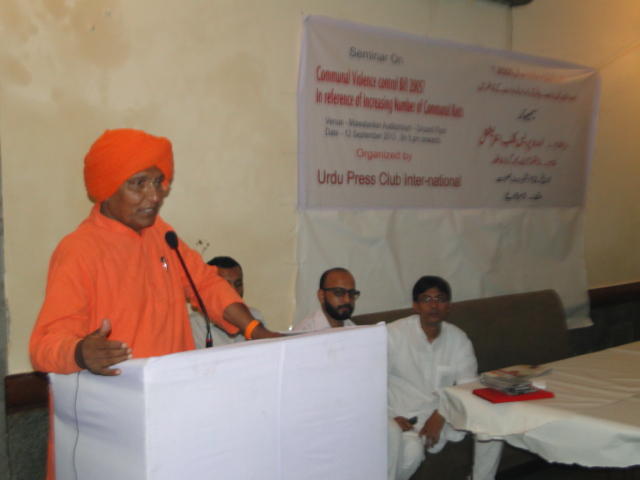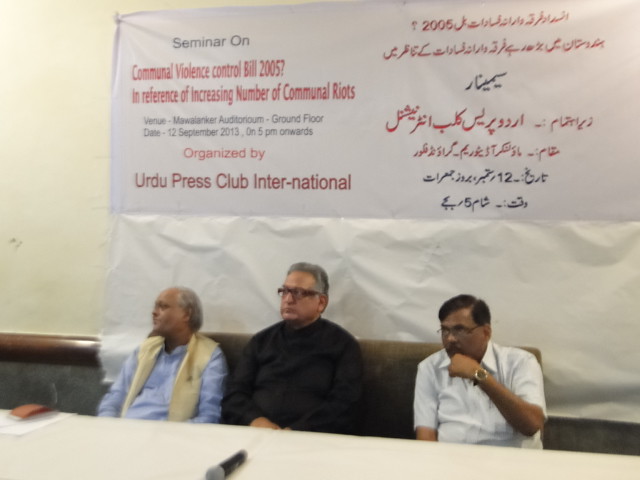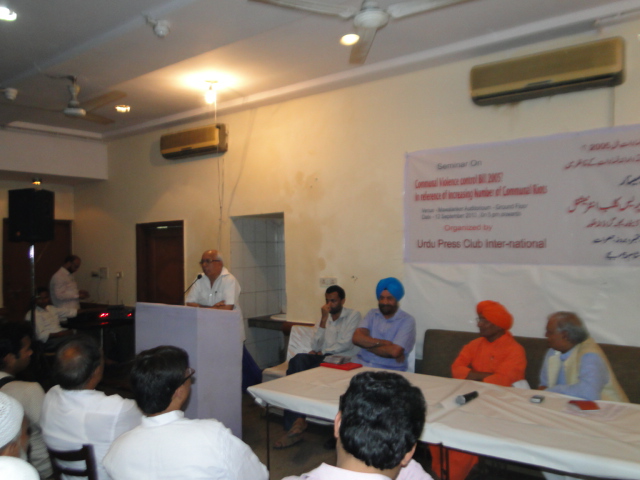By IANS,
Muzaffarnagar: The riot-ravaged Muzaffarnagar district in Uttar Pradesh was calm for a third day Thursday, with the authorities relaxing curfew for seven hours, even as the death toll went up to 43.
Out of the deaths, 38 people have died in Muzaffarnagar alone, three in Baghpat and one each in Saharanpur and Meerut, a state home department official said.
Curfew will be relaxed for 12 hours Friday as the situation is fast improving, the official said.
The government sent in additional food supplies, gas cylinders and foodgrain to the city as markets had been shut for more than five days.
Meanwhile, the district administration cracked down on political leaders headed towards Muzaffarnagar, the state's sugar capital and home to four million people, and arrested a dozen legislators and 151 of their supporters.
Prominent among those who were arrested included senior Bharatiya Janata Party (BJP) leader Kalraj Mishra and Civil Aviation Minister and Rashtriya Lok Dal (RLD) chief Ajit Singh. Both were released after some hours.
The district administration also initiated the process of meetings with "shanti samitis (peace committees) and warned people to be careful of rumours and crosscheck with the authorities before reacting.
A government spokesman also announced that Rs.1 lakh has been announced as a reward for anybody giving information on the person who uploaded the inflammatory and fake video clip on YouTube after which people resorted to violence.
The government clarified that the video clip said to be of Kawal village was in fact two years old and of an incident in northwest Pakistan. Though the video was blocked Aug 30, police officials said the clip was distributed through CDs, pen drives, and shared on social media websites.
With the Samajwadi Party government cracking the whip after coming widespread criticism, senior police officials, including two additional generals, are among those deployed in Muzaffarnagar.
The Akhilesh Yadav government has also cracked down on local police, suspending the station house officials of Fugana, Bhaurakala, Shahpur and Meerpur in Muzaffarnagar and attaching them to the state police chief's office.
The station house officials of Bamnauli, Badaut and Wazidpur in Baghpat have also been suspended for failing in control the situation, while circle officer and station house official of Mawana in Meerut were removed.
Meanwhile, the number of people placed under preventive detention rose to 12,000 by evening and the number of arm licenses that were cancelled stood at 2,300.
"The first half of the week has gone in controlling the violence and we are now focused on bringing life back to normal and the process of identifying people affected by the riots - deaths, injuries, loss of property be it home or commercial establishments," an official said.
Home Secretary Kamal Saxena said that 10 shelter camps for the displaced have been set up in which roughly 10,000 people have taken refuge. The relaxation in curfew has also taken place at the hours will be increased further, he added.
Police officials meanwhile have been a door to door checking operations to identify "any remnants of mobs" and have since confiscated a large amount of ammunition, including 41 cartridges of AK-47 assault rifles.
Communal clashes erupted in Muzaffarnagar Saturday after simmering discontent over a case of harassment Aug 27 in which three people were killed.











